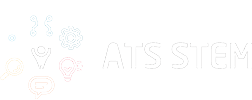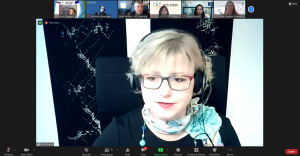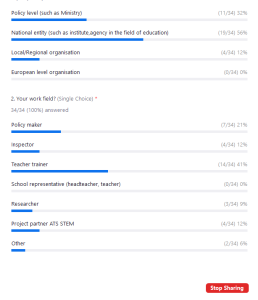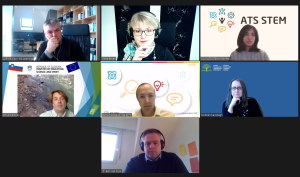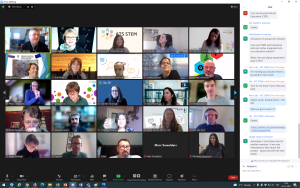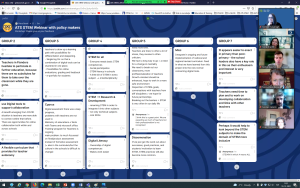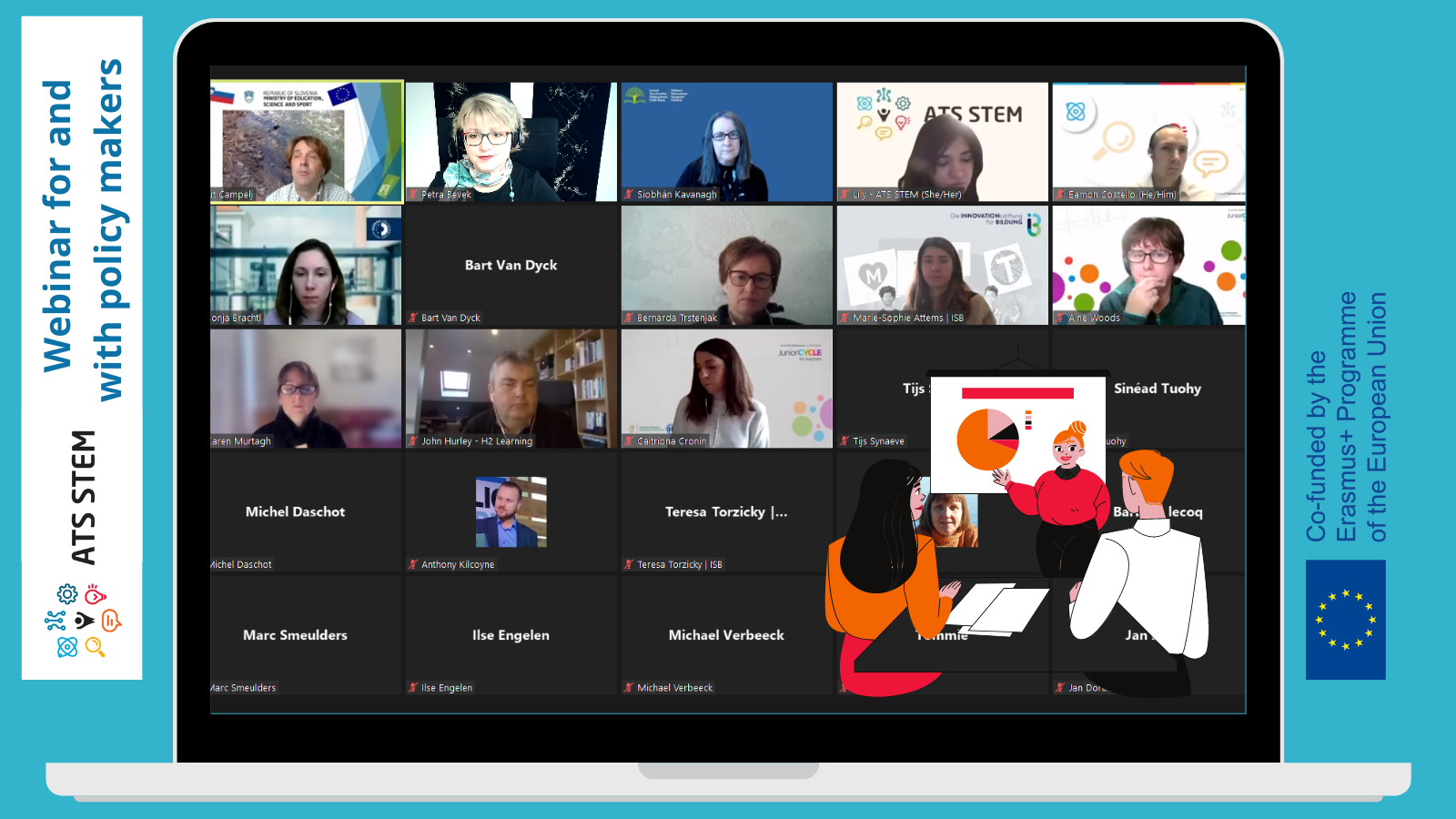
15 Dec Policy Webinar
The ATS STEM webinar for policy makers was held on Friday 10 December 2021 at 10am CET in Zoom. It was led by the Dissemination and exploitation Work Package (WP6) headed by the Slovenian Ministry of Education, Science and Sport. The webinar was the first in a series of planned webinars aimed specifically at national policy makers and stakeholders. In addition to providing an insight into the project, the webinars will focus on elements of the experimentation and open up a space for expert debate and discussion on the results and impact of the project.
The webinar opened with a short welcome and general introduction by Petra Bevek project partner from the Slovenian Ministry of the Ministry of Education, Science and Sport (MESS). It was followed by a brief outline of the schedule by Borut Čampelj, project partner, also from the Slovenian Ministry. Following which Dr Eamon Costello from Dublin City University, project coordinator, gave a brief overview of the project. The talk focused on classroom practices influencing policy development. Eamon highlighted student involvement in the project through examples of students from Sweden and Slovenia. The presentation highlighted students ‘acting as scientists in the world’ and as ‘changemakers’ in the environment. The presentation concluded with noting the importance of teacher support.
- Introduction to the webinar
- Petra Bevek, MESS
- Our participants
- ATS STEM team, some of us
The next presentation was by Bernarda Moravec from the National Institute of Education, Slovenia (NIES). The presentation revolved around implementation of the project in Slovenian schools. Bernarda discussed Teacher Professional Development focused around formative assessment, transversal skills, digital competences and cross-curricular lesson planning. The STEM learning cycles in schools were based on Sustainable Development Goals (SDGs). The presentation concluded with a few examples of student activities from the Slovenian schools.
This was followed by a recorded presentation from Nina, a teacher at Preska Primary school, Slovenia, sharing her experiences with the project. She noted the challenge of integrating transversal skills and cross-curricular collaboration. Examples of student projects like biodegradable plates and mini-gardens undertaken in the school were the highlight of the presentation. Preska Primary School plans to continue the integrated STEM learning and has invited more teachers to join the team to plan a whole range of cross-curricular activities.
- Primary School Preska
Next was a joint presentation from Siobhán Kavanagh, the director of Kildare Education Support Centre and John Hurley, director of H2 Learning. Siobhán gave an overview of the pilot implementation in Ireland. The presentation called attention to a number of factors such as how the digital was being used in schools and learning frameworks in practice. Notably, teachers were consulted and interrogated as to where they envisioned the ATS STEM framework fit into the primary and secondary school curriculum. The project framework was also seen to have potential to be used at transition year between junior and senior cycles. Out of the four key pillars supporting STEM education in Ireland, the project focused on three: enhancing teacher capacity, supporting STEM education practice and using evidence to support STEM education. The presentation concluded with highlighting the next steps of the project and the availability of materials in the Irish language.
- Examples from Ireland
- Tools
The next part of the webinar was the planned workshop. The topic of the workshop was discussion around two integral questions: ‘How can STEM and transversal skills be further integrated into our educational system? And what role can digital assessment play in this?’. The participants were divided into 7 groups and proceeded to discuss in separate breakout rooms for twenty minutes. The webinar concluded with the groups sharing their insights gained through discussion via a representative and Padlet. The closing address was by Borut Čampelj.
- Discussion
- Padlet

